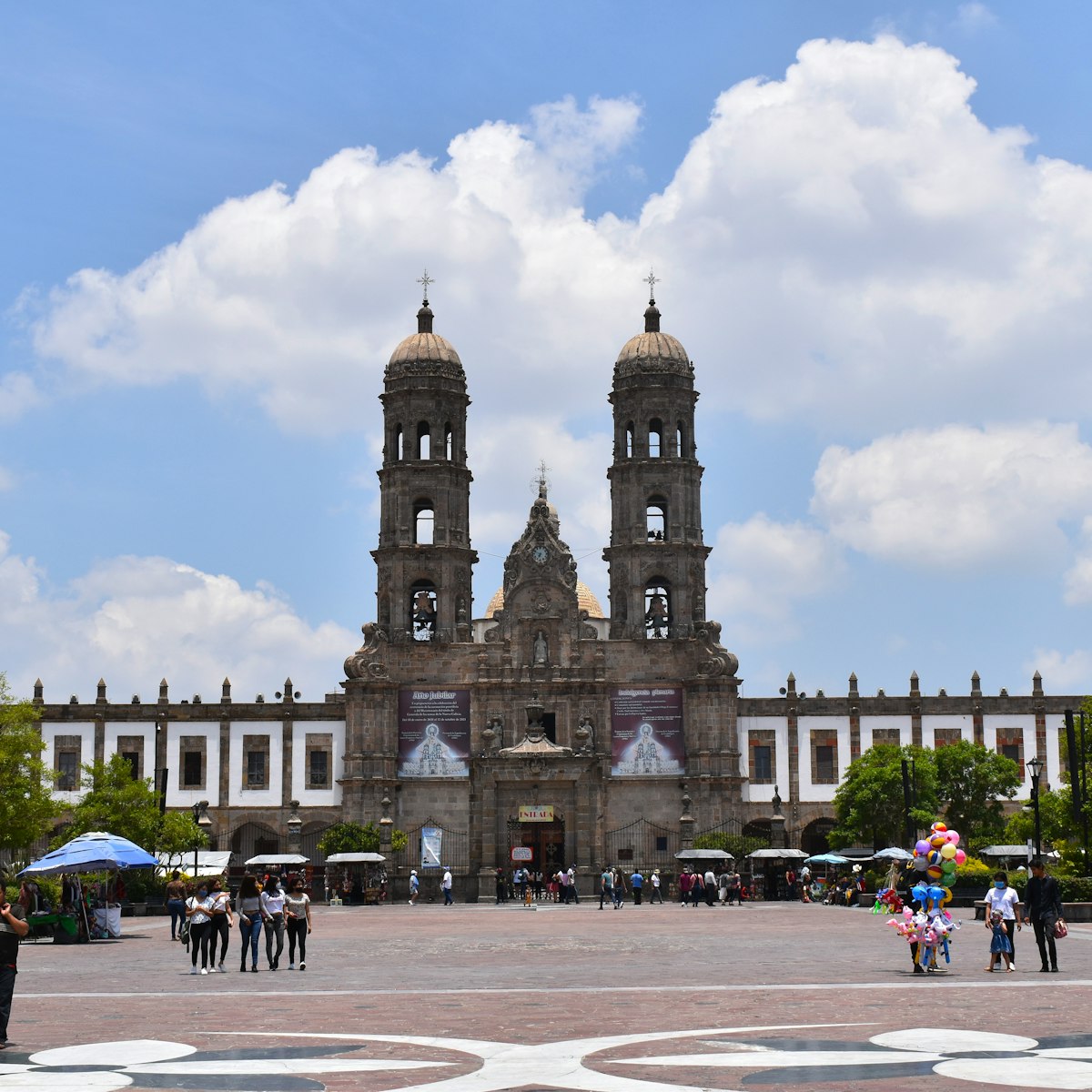Standing proudly at the eastern end of dramatic Plaza Tapatía is one of Guadalajara’s architectural landmarks, and a Unesco World Heritage site since 1997. On the ceiling and inside the dome of the striking neoclassical Capilla Mayor (Main Chapel) is a most unexpected series of modernist murals by José Clemente Orozco, which rank among his best works and Guadalajara's top sights. The complex also houses a collection of 340 other pieces by Orozco, and works by leading lights of Mexico's contemporary art scene.
The beautiful building, which consists of a labyrinth of hidden arched courtyards and exhibition spaces, was founded by Bishop don Juan Cruz Ruiz de Cabañas and designed by Spanish architect Manuel Tolsá between 1805 and 1810. Its original purpose was as an orphanage and home for invalids, and it remained so for 150 years, housing 500 children at one time.
From 1937 to 1939, Orozco, one of the 'Big Three' of the Mexican muralist movement, channeled the archetypal struggle for freedom into 57 magnificent murals that now decorate the domed chapel at the center of the complex. Widely regarded as Orozco’s finest works, they depict pre-Hispanic Jalisco and the conquest, presented through dark, unnerving and distinctly modern images of fire, armor, broken chains, blood and prayer. Given the time frame, the works almost certainly serve as a warning against fascism and any force that subverts humanity to cultivate power. Conveniently placed benches allow you to lie down and inspect the works more easily.
Free tours of the institute in a half-dozen languages (including English) depart regularly. A hands-on Orozco exhibit and a DIY art space keep kids happy and engaged.




